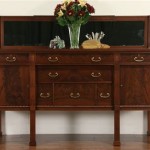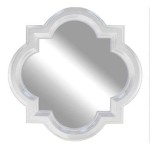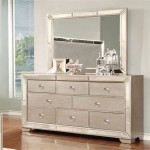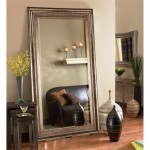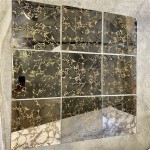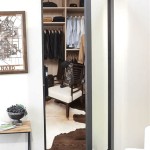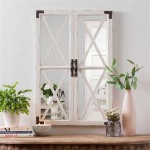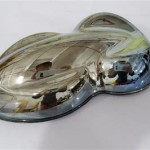How Thick Should Mirror Glass Be?
Choosing the right mirror thickness is crucial for both functionality and safety. A mirror that is too thin can easily warp or break, while one that is too thick can be unnecessarily heavy and expensive. Several factors influence the ideal thickness, including the mirror's size, location, and application.
Mirror Size and Thickness: A Direct Correlation
The larger the mirror, the thicker the glass needs to be to prevent warping and breakage. Warping occurs when the glass bends slightly, causing distortions in the reflection. Larger mirrors are more susceptible to warping due to their increased surface area and weight. A thicker piece of glass provides greater rigidity and resistance to bending.
Standard Thicknesses for Common Applications
Standard mirror thicknesses range from 1/8 inch to 1/4 inch (approximately 3mm to 6mm). Mirrors intended for smaller applications, such as bathroom vanity mirrors or decorative wall mirrors, typically use 1/8 inch thick glass. Larger mirrors, like those used for full-length dressing mirrors or wall-to-wall installations, often require 1/4 inch thick glass or even thicker depending on the size and mounting method.
Location, Location, Location: Environmental Factors
The environment in which the mirror will be placed also plays a role in determining the appropriate thickness. Mirrors installed in high-traffic areas, such as hallways or public spaces, are more likely to experience accidental impacts. In these situations, a thicker mirror offers increased durability and reduces the risk of breakage. Similarly, mirrors exposed to vibrations, such as those near doorways or in areas with heavy machinery, benefit from a thicker, more stable glass.
Mounting Methods and Their Influence on Thickness
The method used to mount the mirror can also impact the required thickness. Mirrors that are glued or adhered directly to a wall require less thickness compared to those hung with clips or brackets. This is because the adhesive provides additional support and distributes the weight across the entire back surface of the mirror. Conversely, mirrors hung with clips or brackets rely on the strength of the glass itself at the points of attachment, necessitating a thicker glass to prevent breakage.
Safety Considerations: Thicker for Safety
Safety is paramount when choosing mirror thickness. Thicker mirrors are less likely to shatter into dangerous shards upon impact, making them a safer choice, especially in homes with children or in public spaces. While tempered glass is often recommended for safety purposes, increasing the thickness of standard annealed glass also contributes significantly to improved safety performance.
Specialty Mirrors and Thickness Requirements
Certain specialized mirror applications require specific thickness considerations. For instance, gym mirrors often utilize thicker glass due to the potential for impacts from exercise equipment or accidental contact. Similarly, dance studio mirrors may require thicker glass for safety reasons and to minimize vibrations that could distort reflections. Two-way mirrors, used in observation rooms and certain security applications, also have unique thickness requirements depending on their construction and intended usage.
Balancing Cost and Functionality
While thicker mirrors generally offer increased durability and safety, they are also more expensive and heavier. It's important to balance the cost and functionality when selecting a mirror thickness. Consider the size, location, and intended use of the mirror to determine the most appropriate and cost-effective thickness for the specific application. Consulting with a glass professional can provide valuable guidance in making the best decision.
Regulations and Building Codes
In some cases, local building codes or regulations may dictate minimum thickness requirements for mirrors in certain applications, especially in commercial or public spaces. It is important to research and comply with these regulations to ensure safety and avoid potential issues with inspections or permits.
The Role of Backing in Mirror Construction
The backing applied to a mirror also contributes to its overall strength and stability. A good quality backing, typically made of a protective material like vinyl or a specialized safety film, can help prevent shattering and improve the mirror's resistance to moisture and other environmental factors. The type and thickness of the backing should be considered in conjunction with the glass thickness to ensure optimal performance and longevity.

Custom Glass What Is A Good Thickness For Mirror

Mirror Glass Thickness 10 Mm

Mirror Thickness Mirrorfit

Must Follow Tips To Pick The Right Mirror Glass For Your House

1 1mm 6mm Thick Clear Silver Mirror Glass Double Coated With Italy Fei Paints For Interior S China Made In Com

5mm Aluminum Mirror Panels Coating Glass Thick

1 1mm 8mm Thickness Float Glass Double Coated Clear Silver Mirror With Max Sheet Size 2440 X 3660mm For Interior S China Made In Com

Large Mirror Glass Gym Or Studio 3mm Thick Value 4ft X

Decorative Colored Mirror Glass 1 8 3 4 5 6 7mm Thickness For Home Decoration

Aluminum Mirror Glass Thickness 1 8mm 2mm 3mm 4mm 5mm 6mm China Bathroom Made In Com

